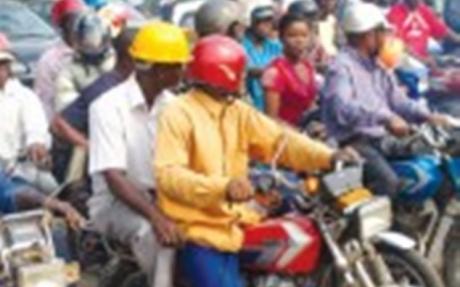IN the wake of the assassination attempt on the Emir of Kano, last week the Kano state government banned the operations of motorcycle taxis, known as ACHABA, in Kano. It was a ban that was long coming; in fact, there was story that government had been set to effect the ban but was worried about a backlash.
And given the central place of those motorcycles in movement in Kano, a very violent backlash was very likely! Kano has the highest number of motorcycles in Nigeria, numbered at over two million. Jibrin Ibrahim’s instructive article for DAILY TRUST this week, located the phenomenon of motorcycle taxis in the collapse of an organised urban transportation system in much of West Africa, from the 1980s.
The crisis of urban transportation coincided with the increased population of people in our urban cities; and in the case of Kano, was related to the crisis of rural life and the pull of thousands of people into the bourgeoning city.
In 1994, I did a package for the BBC’s NETWORK AFRICA about the ACHABA phenomenon. I rode on the back of one these motorcycles; interviewed operators as well as their union’s leadership; I went into the Murtala Muhammed Hospital’s “ACHABA Ward”, which was receiving about 35 ACHABA accidents’ victims each day of the week.
Many of those who operated these motorcycles were urban lumpens in the main, while others came from rural areas around Kano. They were often on drugs; had a nihilistic outlook to life and seemed unfazed about the danger they faced each day or the danger they constituted to their passengers and other road users.
They had certain cryptic descriptions of their attitudes to life: “Mutuwa dole kokafarkatako (death or a broken limb)” and “Shekara da lafiya, kauyanci ne (an accident-free existence is a sign of backwardness)”!
The ACHABA phenomenon was to spread like veldt fire with the return to civil rule in 1999, when governors in many states turned motorcycle taxis into “poverty alleviation” projects and a direct effort at building a base of thugs and toughies used for political purposes.
The more entrenched they became, the more lawless in practically every city. A minor tiff with the ACHABA rider guarantees the convergence of dozens of their colleagues with a consequent disruption of traffic.
This went with heavy urban pollution especially in Kano, which became increasingly dysfunctional in the past decade. All around Northern Nigeria, the dysfunctional existence was reflected in the dominance of ACHABA in transportation. In truth, there were few real jobs for the young people who turned to ACHABA for livelihood.
Historical events often have unforeseen outcomes and so it was with ACHABA. The marginal groups left out of our peculiar form of neo-colonial, neoliberal, corrupt and uncaring capitalism, began to fight back, employing terrorist methods in the insurgency in the North.
The motorcycle taxi became a choice weapon of the terrorism of the past four years. From Borno through to Bauchi, Kaduna and Kano, the motorcycle has been used to carry out all kinds of crime, including assassinations. It reached a head two weeks ago, with the attack on the Emir of Kano.
The ban was therefore an effort to solve many problems in one fell swoop: Curtail the use of motorcycles for terror and sundry crimes; control traffic chaos and hopefully reduce the frightening levels of pollution. But how will the Kano state government deal with the sudden loss of two million jobs?
What are the alternatives? How does the state bridge the transportation deficit opening up with the removal of ACHABA? The questions are legion, but as we have seen in the FCT during El-Rufai’s administration and in Lagos under Fashola and now in Kano, we must address the crisis of urban transportation; find more civilised ways to transport people around our expanding cities and embrace economic policies that create jobs for the millions of young people drawn to ACHABA and in the extreme, use these motorcycles for terrorism and other crimes.
What worries me is that for as long as our ruling class remains wedded to the unproductive neoliberal capitalism, there won’t be light out of our tunnel!


